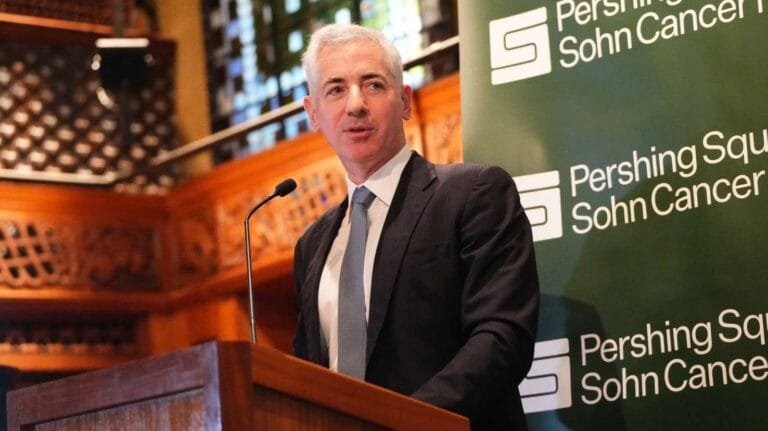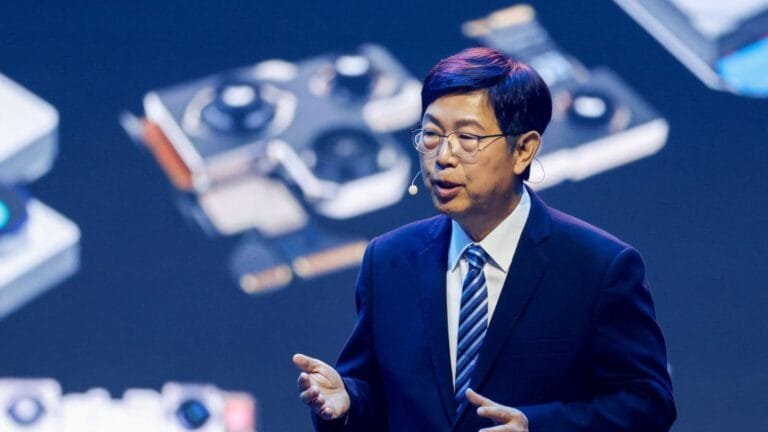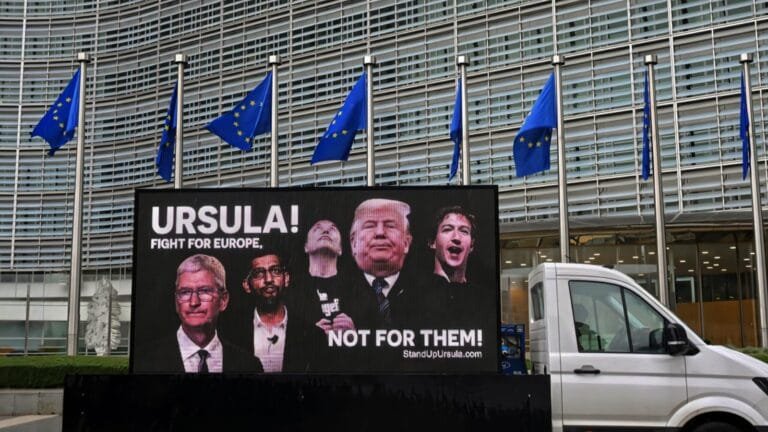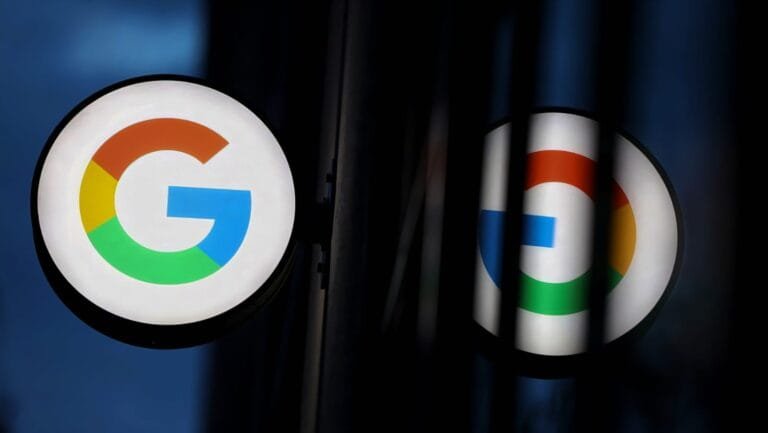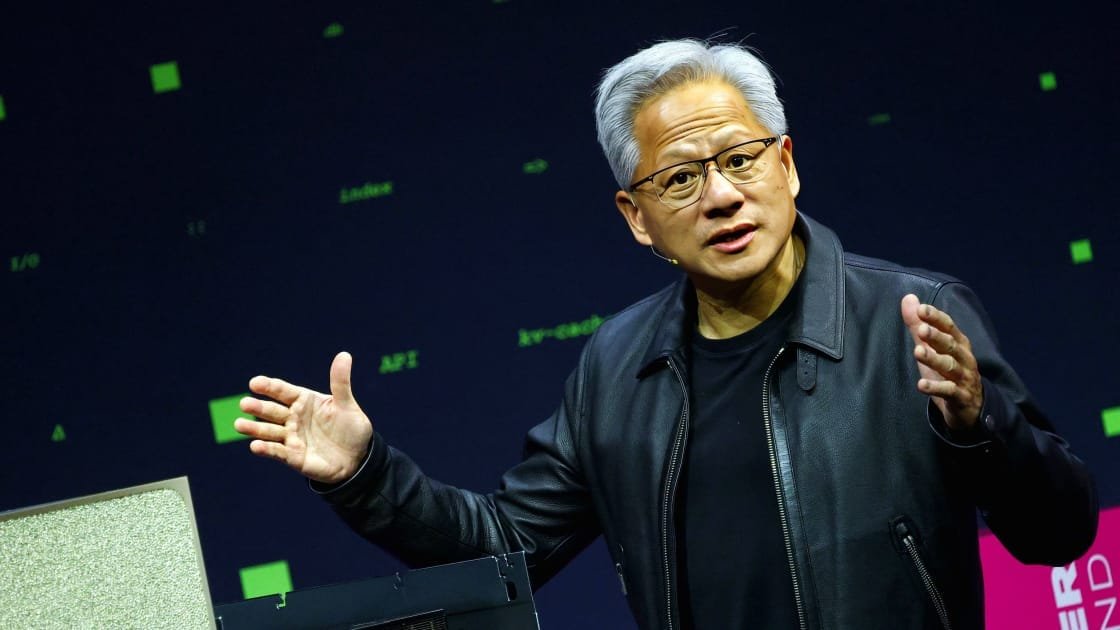
Nvidia CEO Jensen Huang addressing media in Taiwan on AI chip exports to China.
What is Nvidia? Nvidia Blackwell Chip Ban
Nvidia is an American company. It manufactures graphics cards and AI chips. Founded in 1993, Jensen Huang is its founder and CEO. The company’s market capitalization is now in the trillions. It has been further strengthened by the AI boom. Blackwell is its latest chip. It is best for training AI models. But selling it to China is difficult. Why? Because of US sanctions, as well as the features of the Blackwell chip, which is Nvidia’s new product. Launched in March 2024, it is 30 times faster than the Hopper chip. It uses less power. Perfect for data centers. AI companies like OpenAI use it. But the price is high. Millions of dollars per unit. A special version was made for China. But now that too may be blocked. Jensen Huang said we are not planning to ship anything to China. He said this during his visit to Taiwan. Taiwan is a major partner of Nvidia. TSMC manufactures chips there.
Jensen Huang’s full statement
Huang arrived in Taiwan on November 7, 2025. There was an event in Tainan city. There he said, “There are no active discussions with China on Blackwell chips,” but he added that the US government’s rules are strict. “It depends on what China wants.” But nothing for now.” He gave this statement to Reuters. The stock market was affected, and Nvidia’s shares fell slightly. But in the long term, things are fine. Huang visited Taiwan for the fourth time. He met with TSMC. There, he talked about the future of AI. But he was clear on the China topic: no negotiations are underway. Chinese firms are interested, but regulations are preventing it, along with the backdrop of the US-China tech war, which isn’t new. A trade war has been going on since 2018. The Trump administration banned chip exports. Biden made it even stricter. Now the Harris administration will also continue it. Why? National security. China wants to become a superpower in AI, yet companies like Huawei are a threat. Nvidia was prevented from selling chips in 2022. Now, even the scaled-down version of Blackwell, the B30A, is blocked. This chip trains large AI models.
What’s happening on the Chinese side?
China is not happy. They are making their own chips. SMIC and Huawei are challenging, but they lag behind US tech. They don’t have the performance of Blackwell. The Chinese government has taken countermeasures, controlling rare earth minerals. But they are dependent on tech, which companies like Apple and Tesla manufacture in China. But they import chips. Now they are focusing on open-source AI. Baidu and Alibaba are developing new chips, and Jensen Huang’s statement is a blow to China. They were hoping for a special version, but the US rejected it. Reports say the Biden administration also said no to the B30A. This chip is 40% less powerful, yet still strong for AI training. What are the implications? First, for Nvidia. The Chinese market was big, 20% of revenue. Now it will decrease. But global demand is high. Microsoft and Google are buying. Shares are above $800. Second, for China. AI development will slow down, but they will innovate. Third, global tech. Supply chains will shift. Taiwan and India will become hubs. They will be built.
Future Outlook: What’s Next?
Huang said, “It depends on China. If the rules change, we will ship.” But after the 2024 US elections, the restrictions increased. If Trump returns, there will be more tariffs. Harris will continue them. Nvidia will bring new chips. Rubin in 2026. But the China version is difficult. The company is diversifying. The Japanese and Korean markets are growing, as experts say. This war is long-term. Both sides are investing. The US CHIPS Act provides $50 billion, while China plans $100 billion. But talent is shifting. Indian engineers are helping, and then there’s the effect of AI on the human mind, which is now the topic of AI. Chips like Blackwell make AI smarter. But what about the human mind? AI increases creativity. But jobs are at risk. Doctors and teachers will change. But the human touch is essential. Ethics are important. Avoid bias. Protect privacy. Despite this, AI surveillance is used in China. In the US, it’s used in healthcare. But tensions reduce sharing. Research is slow. But open source helps. Platforms like Hugging Face.
Nvidia’s History in China of Nvidia Blackwell Chip Ban
Nvidia has been in China since 2010. TSMC is a partner. But banned since 2019. The H100 chip was stopped. Then the A100. Now Blackwell. The company made Chinese versions. But the US is checking. A B20A plan was scheduled for 2025. But it was canceled. Revenue loss of $5 billion. But profits are still high. Huang has Chinese roots. But he is loyal to the US. He said, “We are a global company. But we follow the rules.” Despite this, the tech war impacts the global economy, affecting GDP. US growth is down 2%. China 1.5%. But innovation is speeding up. Startups are increasing. 1000 new firms in India. Consumer prices are rising. GPUs are expensive. Gamers are waiting. But cloud computing is cheaper. AWS and Azure help. So what about consumers? Chips in smartphones and EVs are expensive. But the quality is better. AI tools like ChatGPT are faster. But Privacy Issues. US-China Tensions Divide the World
Case Studies: Similar Incidents of Nvidia Blackwell Chip Ban
Huawei Ban in 2019. Google services cut, Samsung chips blocked. Result? Huawei 5G slowed down but is now recovering. ZTE case: fined $1 billion, then complied. Nvidia’s case is different. They complied but lost 10% of their stock value in 2022. Now recovering. Conclusion: What did we learn? This news shows that technology is global but politics is local. Companies must adapt and innovate. Despite this, customers shouldn’t wait. The future is bright, but patience is needed, says America. This chip could be used for military purposes.China will use them in drones and surveillance. That’s why they’re banned. Nvidia made the H20 chip for China, but its sales are now also at risk and have decreased. Revenue from China will be 10% lower in 2025, but revenue from India and Europe has increased.
